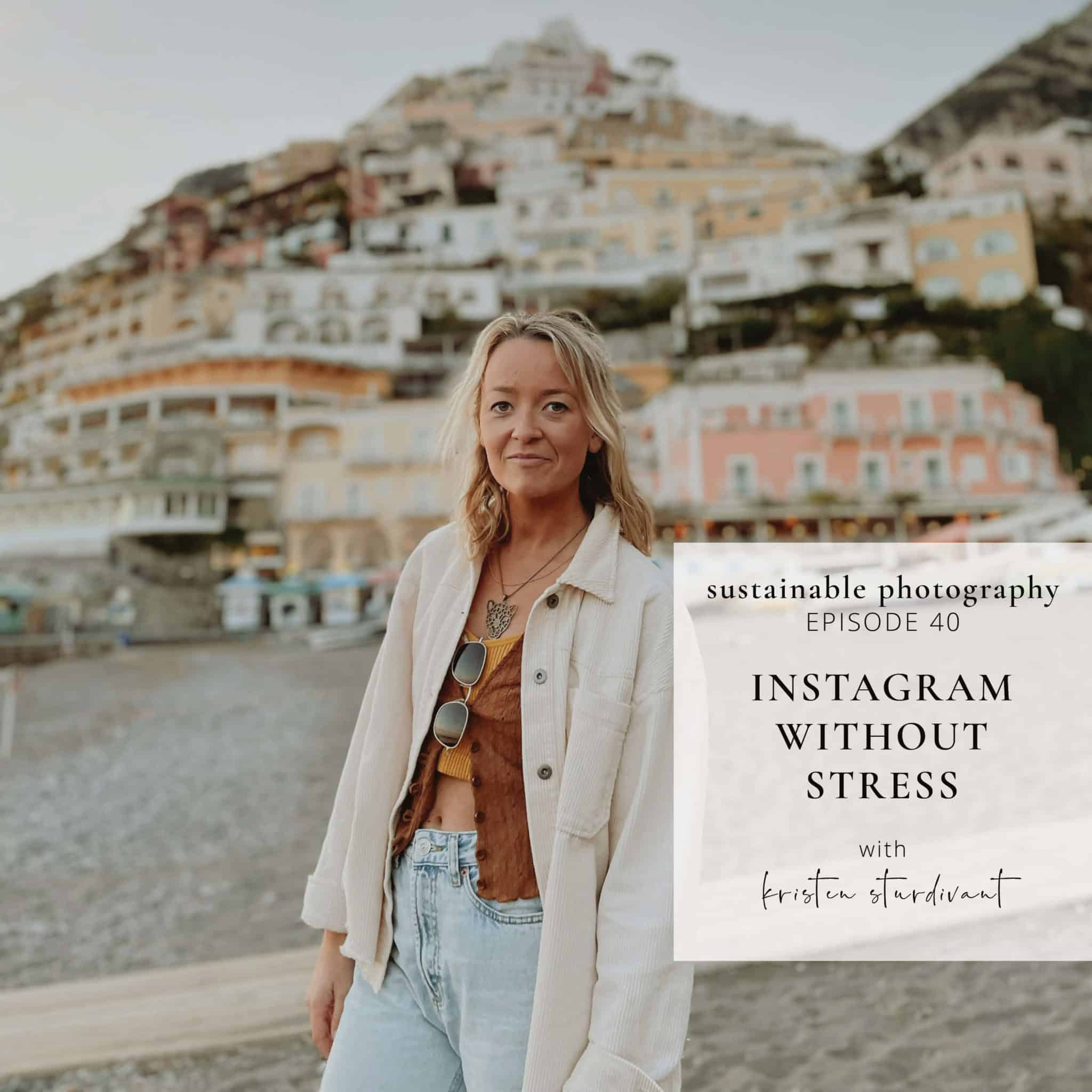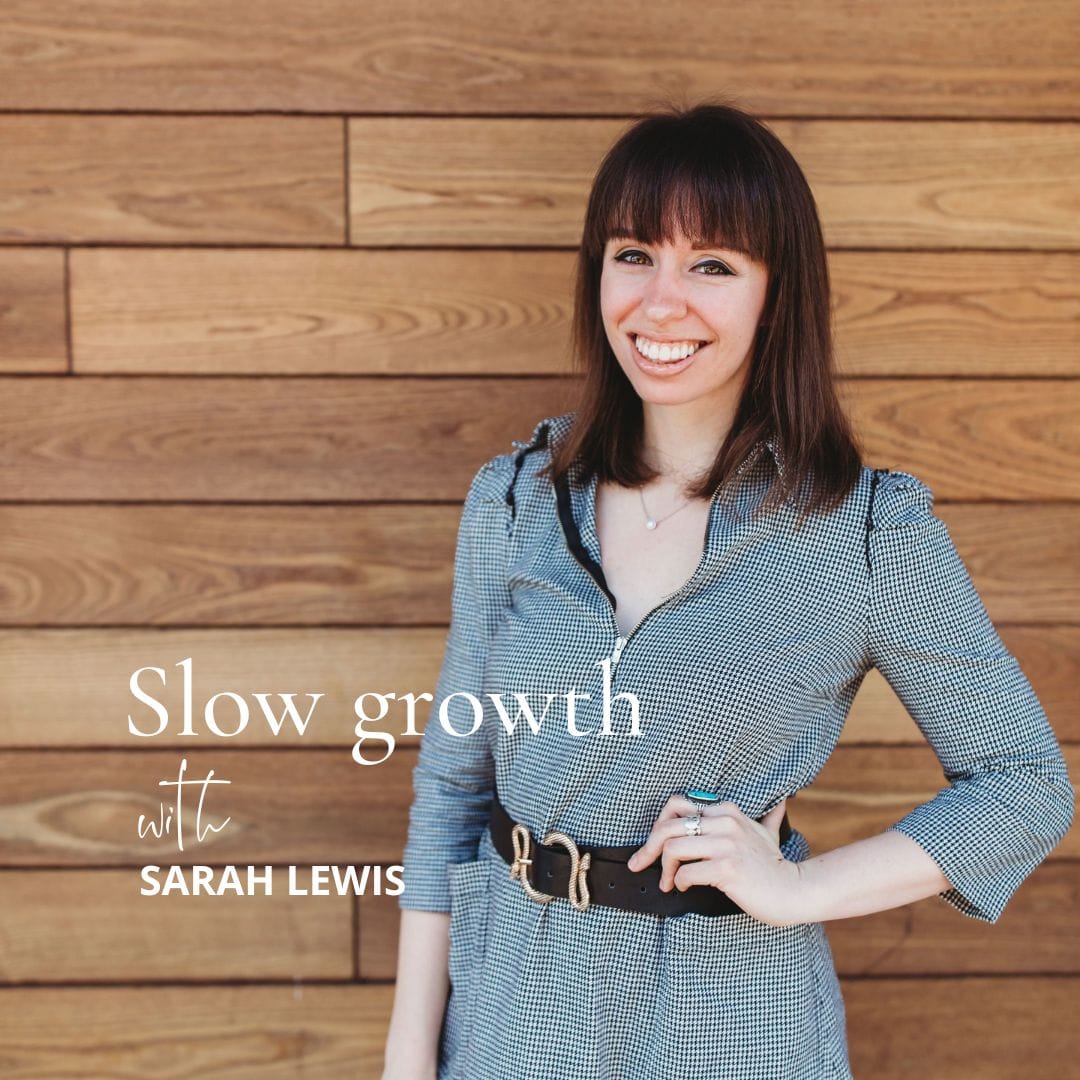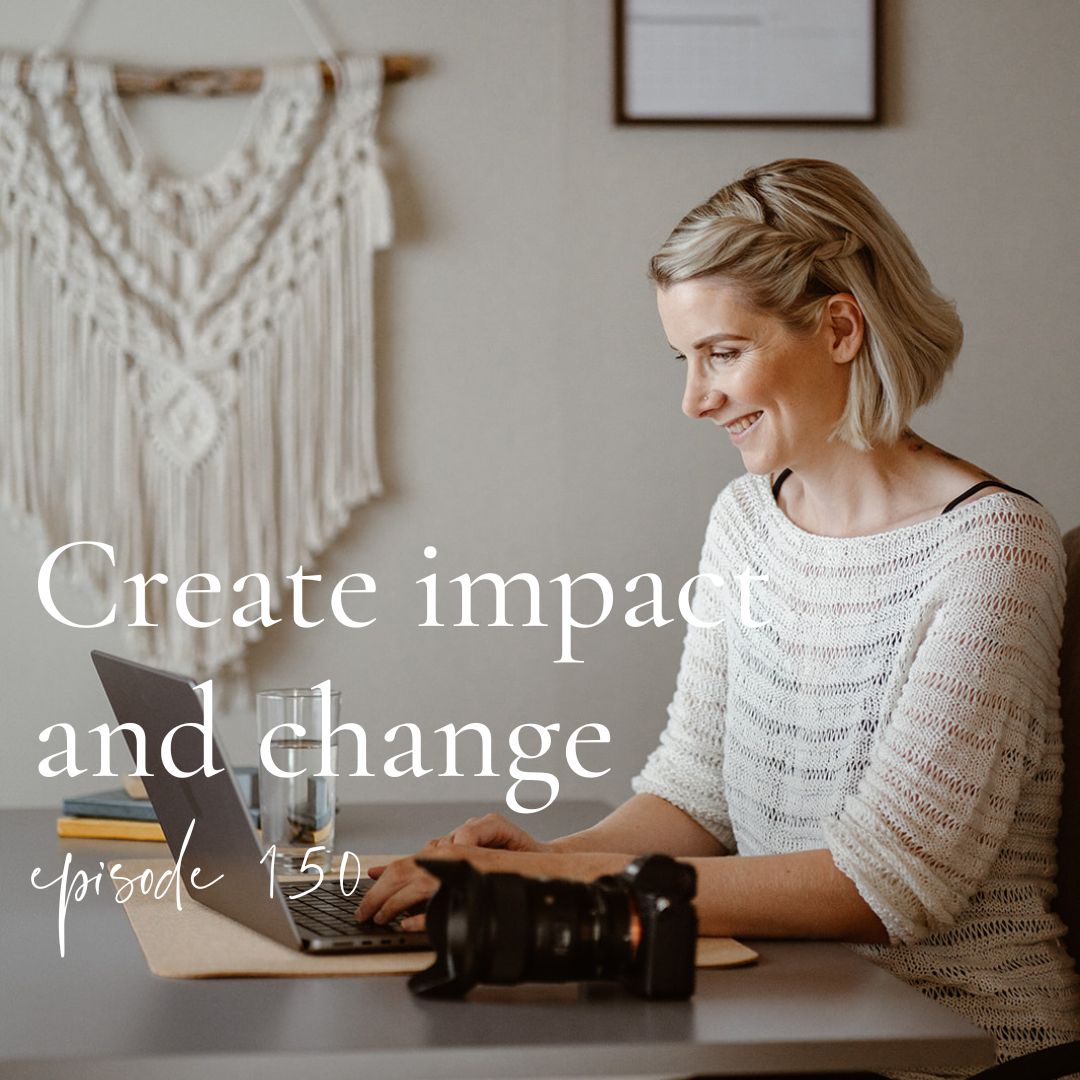Episode Transcript
[00:00:00] Hi and welcome. You're listening to sustainable photography episode 160. And I feel like it's been a while, but it really hasn't.
[00:00:11] But since I last recorded, I have created a beginner's course and I've had a testing of that last week and it went really well. And I feel so inspired by. By that that I actually wanted to do a full episode on how to start out as a photographer. And yeah, maybe that's not you. Maybe you're way past that. In which case, send this episode to a friend that might be newer because we have so much, we all have so much to learn. But in the beginning, it's so easy to think that you need to know so much more before you can get started, or that you already know everything worth knowing. And that's why I wanted to talk about some things that you might want to think about if you're newer. I don't know about you, of course, but for me and for most people that I know who are photographers, it's something that isn't necessarily the plan from the beginning. It just kind of happens. Suddenly you're there, you're a photographer, and you might know a lot more about the photography aspect of things than running a business.
[00:01:27] And even if you've gone to school for photography, you most likely haven't learned that much about running a business. And that is such a shame, because it's really important to treat your photography business as a business from day one. If you don't, it's very likely that you're going to start with brand pricing yourself too low, you're not going to learn how to actually charge money. You might feel guilty, and you might just struggle for a lot longer than you need to. And that is just such a shame.
[00:02:01] I'd love to know what your biggest fears around starting a photography business is. You can DM me on Instagram if you want. Go to Ingvilkolnes. That's intv I L D K well N E S and let me know B because the more I know about your struggles and what you want to know, the more I can help. And that is my goal. I want to make your life as a photographer better and easier. In the beginning, I think it's completely fine to do a lot of different things to really figure out what you want.
[00:02:35] But I do want to prepare you that down the line, specializing in something will make marketing so much easier. If you do everything everywhere for everyone, there's not going to be a clear reason why someone should choose you. And deciding on what you want to focus on, that might not be that easy. But you can focus on a geographical area. You can focus on a specific type of photography, like weddings or portraits or branding. You probably have a specific style that you want to focus on. Maybe you're realizing that all your clients are a certain kind. Maybe, maybe you work with small businesses or fun weddings or new moms, whatever it is, there's so many options and the clearer you are about who you want to help, the easier it will be for your right people to find you. But as I said, it's completely fine to start out testing different things, figuring out what you enjoy, what might pay the most, all those things. Because it's really important again to treat your photography business as a business.
[00:03:50] And in which case you do have to think about what will pay off. Other than that, I think it's important to mention that you want to register your business in a legal way so that you have a business name, you're paying taxes, all those things. And you also want to have a separate business bank account. All that stuff is probably a bit different from country to country. But do check to see what you need to do where you live so that you don't mess this stuff up. It's pretty important other than like the, I want to say, technical stuff. You want to make sure that you calculate your prices. From day one, most photographers start out checking out other photographers prices and maybe putting their own prices a little bit lower. And that is a pretty big mistake because you don't know anything about anyone else's business. You don't know who their clients are, you don't know how much they're booking, you don't know if they're even profitable. So you need to look at your expenses, your costs of living and figure out what you need to charge. That is first and foremost. And in the beginning, when you're learning, when you're building a portfolio, maybe you want to work for free, maybe you feel like you need to charge less, that is fine.
[00:05:11] But make sure that your actual sustainable prices are listed and that you instead give a discount of however much until you are giving your clients what they are expecting for the price that you need to charge. If you don't, you have a very long road ahead. Because starting out with prices that are nowhere near where they need to be and then growing slowly and then increasing your prices slowly, that will take a really long time for you to have a profitable, sustainable business. And that is not what I want for you. And please don't Take from this that you have to work for free or that you have to give a discount, but you do need to provide what you are promising. So if you are promising that you have a lot of experience and that you know what you're doing, make sure that that is actually true. You don't want to say something that isn't true. And there is nothing wrong with having a lower price or even working for free while you're figuring things out, while you're building your workflows and things, figuring out what your clients need on building a portfolio. But make it clear that you're actually new. Make it clear that you're learning, that you're an apprentice and therefore you're charging less than your full rates. But having your full rates accessible and possible to see, makes it possible for the people you're working with initially to still refer you to their friends without them getting a complete price shock when they see what your rates are a year or two or five down the line. A low price tag does not say that you're new. You have to say that you're new. That is part of it. Of course you can be new and still know what you're doing and they're not being any effects by that, that is picked up on by the client and that's fine. But if you need that confidence, if you need to build out your systems and stuff, that's completely fine. Once you have your business set up and you have your portfolio, you know what you're doing, your prices are set, then it's time to get actual clients and to get those first real clients. You don't need everything, you just need to work with what you already have. Tell everyone you know that you're a photographer. Tell them how they can book you, what kind of photography you do, add it to your social media channels, maybe even create a simple website.
[00:07:54] Make sure that it's simple. Rather than think that you need to have like 10 different pages and a blog or anything like that. Start simple and build from that. And make sure that you tell the clients you book that you want more clients like those clients, because the clients you have, that is your biggest potential referral source. Happy clients. Spread the word. And I also want to say that I hope you set up systems and take time off from the very start, because that doesn't necessarily get easier as as time goes by. You want to make sure that you have time for yourself, for your family, for everything else that matters in your life. Because starting a business is a lot of work. There's A lot of things you need to learn and figure out and do, and having some parts of your life that's outside of that, and setting boundaries with your clients and with yourself from the start, that can make a big difference. So I recommend setting up systems early on, whether that's for your internal workflow or saving all the emails you send so that you can use them for templates. All of that that's going to help you down the line and you're going to be so grateful that you did. One thing that I hear from photographers again and again is how hard it is to be in the slow seasons.
[00:09:30] I think just preparing for that from the get go can really help you out. Because if you know that there are going to be times where you're not going to get as many bookings, you're not going to get as many inquiries, things are going to be more quiet, then you'll prepare for it mentally, but you can also prepare for it in other ways, like being proactive with your marketing, having projects and improvements they want to do in the slow seasons. I can really, really help because you're not always going to feel motivated to do everything that you need to do. But having a plan, having set some, some tasks to do can really help you out and push through when things are not that easy. As I said, I have just started making a course for beginners, so of course what I'm talking about here is just a fraction of that. But do let me know if you're interested in knowing more. Right now it's just going to be available in Norwegian, but if there's enough interest, I might make it in English as well. But to sum up what you need to focus on as a new photographer, you need to have your business set up registered with a bank account so that you don't mix your personal and your business assets. You want to have your prices calculated based on your own needs, your own expenses, and you want to build a portfolio. And it's okay if you want to work for free or to charge less, but you have to communicate to your clients why you're doing that so that they don't expect a full service from someone who doesn't really know what they're doing. There's nothing wrong with being new, but you have to be honest with them and also with yourself so that you're running an ethical business. It's really important. And to get those first clients, clients, make sure that you talk about what you do with people you know, talk about it on social media and don't hold back. There's not a set time when you can start calling yourself a photographer, so you might have to practice saying it out loud that you're a photographer. People can book you and the price, but the sooner you get started with that, the easier it's going to be and the more natural it's going to feel. I am sure that you can do this, but if you have any questions DM me on Instagram you'll find melkolnas ingv I l d K o l n e s I'll talk to you next week.
[00:12:13] You just listened to an episode of Sustainable Photography. Please share this episode with the photographer you care about.


